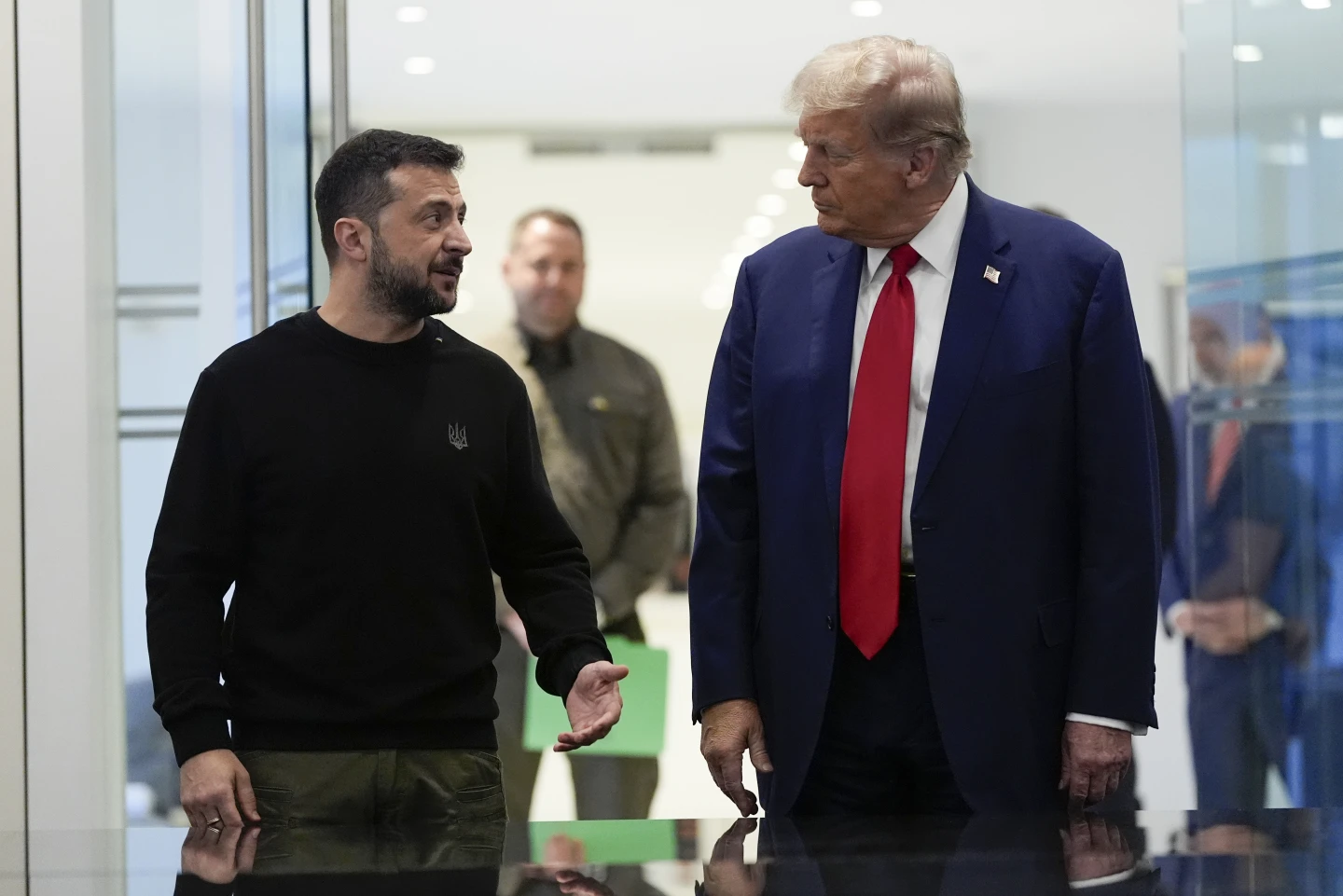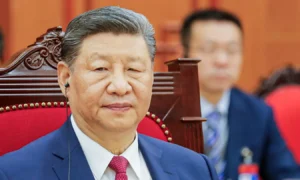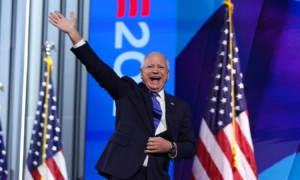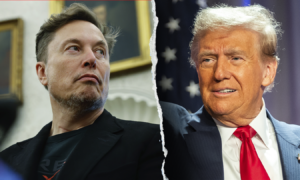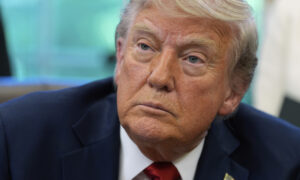Just days before the three-year anniversary of Russia’s full-scale invasion, the Trump administration abruptly shattered Ukraine’s hopes for a fair and permanent settlement.
The Ukrainian capital of Kyiv was able to weather Moscow’s relentless assaults for a long time thanks to the unwavering backing of its European and American friends.
However, European cities like Kyiv took Trump’s long phone conversation with Putin last week as a sign that their partnership to restrain Moscow was deteriorating, as it reversed years of U.S. strategy to isolate Putin over his aggressiveness.
In this timeline, you can see:
February 12th, Wednesday
Russians celebrated the decision to start peace talks during the 90-minute discussion between Trump and Putin, but Ukrainian President Volodymyr Zelenskyy had cautioned that it would be “very dangerous” to exclude Ukraine from the negotiations.
The day following Putin’s conversation, Trump talked with Zelenskyy, but U.S. Defense Secretary Pete Hegseth had already stated that Ukraine’s participation in NATO, which Kyiv thinks would safeguard Europe and the nation from future Russian aggression, was impossible. Along lines with Moscow’s stance, he said Ukraine should give up on reclaiming all of its land.
Many Ukrainians, weary from years of fighting, feel they are being ignored in discussions about their future and worry that a deal imposed by Russia and the United States will leave them exposed to further aggression from Moscow.
The 14th of February, Friday
At the Munich Security Conference in Germany, European leaders got their initial opportunity to meet with representatives of the incoming Trump administration. They aimed to obtain clarification over Trump’s stance on the conflict during this meeting.
U.S. Vice President JD Vance and other top officials shocked world leaders when they criticized European states, sent conflicting signals about their support for Kyiv, and implied that Europe would not participate in discussions over Ukraine.
In the much-anticipated meeting between Vance and Zelenskyy in Munich, the leader of Ukraine informed Vance that, before his country could engage in peace talks with Moscow, it required security assurances.
As part of his negotiations with Vance, Zelenskyy said he had instructed his ministers to refuse to approve an agreement that would have granted the US access to rare earth materials extracted from Ukraine. Ukrainian authorities expressed their disappointment that the U.S. approach failed to provide any concrete security assurances in exchange for the use of Ukraine’s extensive mineral deposits, which are vital to the aerospace, defense, and nuclear sectors.
The refusal by Zelenskyy was characterized by a senior White House official as “short-sighted.”
March 16th, Sunday
In an effort to mobilize European leaders to strengthen their support for Ukraine, French President Emmanuel Macron started rallying on the penultimate day of the conference. His foreign minister announced an emergency “working meeting” in Paris to evaluate the next steps for the continent.
As a number of European nations secretly plotted to deploy soldiers to Ukraine to implement any potential peace deal with Russia, worries grew that the United States would withdraw its backing for Kyiv.
February 18th, Tuesday
Instead of meeting in Kyiv with its European supporters, Russian and American officials convened in the capital of Saudi Arabia. In a stunning shift in American foreign policy, the two nations have committed to collaborating in an effort to resolve the conflict in Ukraine and strengthen diplomatic and commercial relations.
Secretaries Marco Rubio and Waltz of national security and Steve Witkoff of Trump’s special Mideast envoy emphasized that the four-hour meeting in Riyadh was primarily focused on gauging Russia’s commitment to pursuing a peace accord.
It was left to be determined whether the Russians were prepared to talk in good faith, as all three publicly stated that no particular suggestions had been made.
While Trump, Vance, and Rubio were absent from Riyadh, they held conversations with Zelenskyy and European officials who would be participating in peace negotiations when they begin. They also denied claims that either Ukraine or Europe were being left out.
The negotiations would “yield no results” if Ukraine wasn’t involved, Zelenskyy said, dismissing them. In order to keep his travel unrelated to the U.S.-Russia meeting, he canceled his plans to visit Riyadh the next day.
In response to Kyiv’s complaints about being ignored in Riyadh, Trump escalated his harsh rhetoric, which alarmed and angered Ukrainians and appeared to go against the guarantees that Rubio, Waltz, and Witkoff had tried to offer.
The president made the startling claim from his Mar-a-Lago resort that the war that has killed tens of thousands of Ukrainians began in Ukraine. He also criticized Zelenksyy for following the Ukrainian Constitution and postponing elections because of the invasion.
February 19th, Wednesday
After Trump referred to Zelenskyy as a “dictator” in a social media post on Wednesday, Zelenskyy responded by claiming that Trump’s statements were based on “disinformation” from Russia and urging Trump’s team to “be more truthful.”
The Russian-created “disinformation space” is Trump’s reality, according to Zelenskyy.
On Wednesday morning, Ret. Lt. Gen. Keith Kellogg, Trump’s special envoy for Ukraine and Russia, arrived in Ukraine’s capital by train to meet with Zelenskyy and other officials. Despite the deteriorating relations between the two leaders, there was one potential development that could help defuse tensions between Washington and Kyiv.
On matters of defense, Kellogg has been Trump’s go-to advisor for quite some time. Kellogg was expected to meet with Zelenskyy, who had expressed his want to brief him on the situation in Ukraine and accompany him to the front line; Zelenskyy had also expressed his desire to discuss Trump’s attempts to terminate the conflict.
Friday, February 20
The U.S. delegation requested the sudden cancellation of a news conference that was supposed to follow a meeting between Zelenskyy and Kellogg.
Friday, February 21
According to Kellogg’s post on X, he spent a “long and intense day with the senior leadership of Ukraine.” This was a very flattering gesture, especially considering the tone of the previous days.
“The embattled and courageous leader of a nation at war and his talented national security team” were the subjects of his constructive conversations, he claimed.
Trump persisted in criticizing Zelenskyy, claiming that U.S. Treasury Secretary Scott Bessent’s trip to Kyiv last week was “a wasted trip” due to the Ukrainian side’s refusal to agree to a U.S. plan to benefit from rare earth minerals.
However, Trump’s national security advisor, Waltz, was certain that Zelenskyy would close a deal on rare earths. “The crux of the matter is this. Waltz said that President Zelenskyy will be signing the contract.
In an interview with Fox News’ “The Brian Kilmeade Show,” Trump similarly downplayed Zelenskyy’s grievances about being left out of the Saudi negotiations. He was very sure that Putin was looking to make a deal.
If Putin wants to stay in the pact, he doesn’t have to, Trump said Putin. “Because he would get the whole country if he wanted.”

